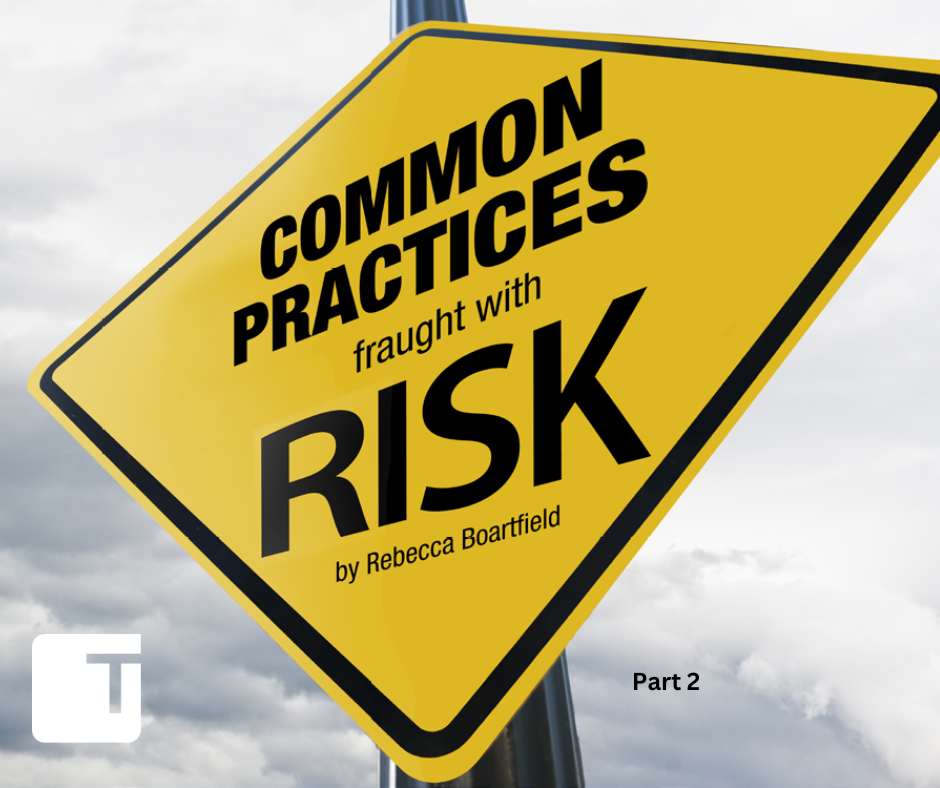Originally published April 2018 in Trojan Today.
“Working interviews,” volunteering, and/or unpaid internships are not uncommon in the industry, but they have become a source of increasing risk to dentists, both financially and emotionally. Last month, Trojan Today covered working interviews. This month, we look at volunteering and/or unpaid internships.
Volunteering & Unpaid Internships
Whether it is staff “volunteering” to provide dental services to a charity group or having unpaid interns work for the summer, employers often erroneously believe they have greater flexibility in determining whether the employee will get paid than they really do.
Under the FLSA, employees may not volunteer services to “for-profit” private sector employers.
An individual can be considered a volunteer under the FLSA if the individual:
- Performs hours of service for a public agency for civic, charitable, or humanitarian reasons, without promise, expectation, or receipt of compensation for services rendered; although a volunteer can be paid expenses, reasonable benefits, or a nominal fee to perform such services;
- Offers services freely and without pressure or coercion; and
- Is not otherwise employed by the same public agency to perform the same type of services as those for which the individual proposes to volunteer.
Employees may end up volunteering for their employer when they are encouraged to get involved with a charitable organization. The big trap for employers is crossing the line from encouraging staff to coercing or pressuring staff to volunteer.
The following factors could mean compensation is due:
- Employer requests volunteers to participate;
- The employee is under the employer’s control while volunteering;
- The employee is required to be on the premises;
- The volunteer work occurs during normal work hours;
- Non-participation adversely affects employee’s working conditions or employment status; and
- There is a significant connection between the employer and the charity, and they are considered a single enterprise.
As for volunteering for an employee’s own employer, this will not pass the test with the FLSA when the work is performed during normal work hours, the work is similar to employee’s regular job (regardless of when the volunteer hours occur), and the employee’s participation is not truly voluntary.
Keep in mind the following regarding internships. In order to have an intern who is not compensated, the FLSA states all of the following criteria must be met:
- The training, though it may include actual operation of the employer’s facilities, is similar to training that would be given in a vocational school;
- The training is for the benefit of the student;
- The student does not displace regular employees, but works under close observation;
- The employer who provides the training receives no immediate advantage from the activities of the trainees or students and, on occasion, his/her operations may even be impeded;
- The student is not necessarily entitled to a job at conclusion of the training period; and
- The employer and the student understand the student is not entitled to wages for the time spent training.
NOTE: Some states have stricter criteria.
Conclusion
Not paying individuals when they meet the government definition of “working” is very risky. Without carefully considering the various components related to working interviews, skills assessments, volunteering, or unpaid internships, the employer could wind up with messy claims that are sure to be costlier than otherwise need to be. The safest course of action is to pay people for their time spent providing a service to the employer, whether “officially hired” or not.

